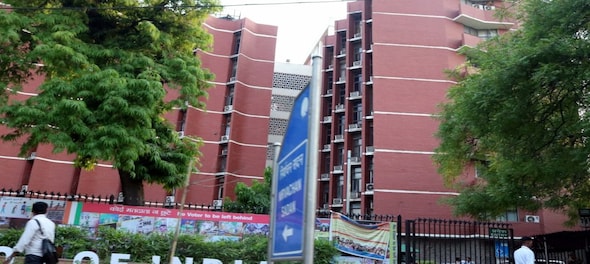
Article 324(2) of the Indian Constitution reads as; “The Election Commission shall consist of the Chief Election Commissioner and such number of other Election Commissioners, if any, as the President may from time-to-time fix and the appointment of the Chief Election Commissioner and other Election Commissioners shall, subject to the provisions of any law made in that behalf by Parliament, be made by the President.”
In 2015, a public interest litigation (PIL) was filed by one Anoop Baranwal challenging the constitutional validity of the practice---from inception of Parliamentary democracy in the country post-independence---of the Centre appointing members of the Election Commission. In October 2018, a two-judge bench of the SC referred the case to a larger bench since it would require a close examination of Article 324 of the Constitution, which deals with the mandate of the Chief Election Commissioner.
The five-member bench gave its verdict on 2nd March 2023 ordering constitution of a committee comprising the prime minister (PM), leader of opposition (LOP) and the Chief Justice of India (CJI) who would hereafter appoint CEC and other members of the EC till such time the Parliament passes the law as visualised by article 324(2).
The SC has interpreted the said article as not conferring any choice on the Parliament whereas the government had taken the diametrically opposite stand---if the Parliament in its wisdom refrains from making a law, its hands cannot be forced. In other words, in government’s perception if the Parliament doesn’t make any law, it means it has impliedly cast its faith in Presidential appointment which in practical terms means appointment by the government of the day. The SC has for good measure said that the new law cannot perpetuate the status quo which is, the Law Minister suggests a pool of suitable candidates to the Prime Minister for consideration. The President makes the appointment on the advice of the PM, period.
The ratio of the Apex Court verdict
The Supreme Court's directive says that the appointment of the Chief Election Commissioner and the Election Commissioners shall be made by the President on the advice of a Committee consisting of the Prime Minister, the Leader of the Opposition of the Lok Sabha, and in case no leader of Opposition is available, the leader of the largest opposition Party in the Lok Sabha in terms of numerical strength, and the Chief Justice of India.
"We make it clear that this will be subject to any law to be made by Parliament," the bench did mention;
This means that Parliament can undo the effect of the SC verdict by bringing in a new law on the issue which cannot of course bring back the pre-verdict practice or restore status quo. The hon’ble Supreme Court has cited at length what the constitution assembly wanted in this regard.
It resiled from the Government of India Act, 1935 while making a case for the committee approach to the appointment of election commissioners. It also reiterated its worldview of judicial interference in the face of legislative inertia. It has cited for good measure its Vishaka guidelines to protect women from sexual harassment in workplaces. So far so good. But the verdict has deliberately or through omission not prescribed the nitty-gritty.
Also Read: Why the SC’s judgement on appointment of Election Commissioners being hailed as a landmark one
Assuming the government does not bestir thus allowing the three-member committee envisaged by the SC to hold sway what happens when the three members of the committee do not see eye to eye? Can the legislation set store by the majority? Majority view is indeed democratic but what if the government is in the minority which would be the case if the CJI and LOP are on the same page while the PM strikes a defiant note.
Can the government vest the PM with two votes just in case? In that case there could be a stalemate or impasse if the CJI and the LOP are on the same page but the PM remains triumphantly defiant exercising his twin votes. Who will break such deadlock----the CJI or the PM or by taking the issue to the Lok Sabha?
Proportional political representation
And if the government bestirs itself and makes it an all legislature show by keeping the CJI out of the committee and gives proportional representation in say a five-member committee on the basis of numerical strength of parties in the Lok Sabha, will it pass muster?
Alternatively, and more brazenly, the law may leave the matter of EC appointments to the PM, the speaker and LOP. The point is political parties across the political divide may see wisdom in not allowing the judiciary to make inroads into executive turf. Such insular or clannish legislation itself might come under attack and sought to be declared unconstitutional by the SC. The latest SC verdict on the subject is certainly not going to be the last or final.
All the three wings of the government, legislature, executive and judiciary are territorial. The SC, it is submitted with due respect, cannot take moral high ground in this regard having interpreted ‘consultation’ to mean ‘concurrence’ in the matter of appointment of judges to SC and HCs and jettisoning the government bid in 2015 to dismantle the regime of SC having the veto power in appointment of judges thanks to its freewheeling interpretation of the term ‘consultation’ occurring in the Constitution dealing with appointment of judges by the government. Thus slighted, the government sits on the SC collegium recommendations for appointment for months on end. It is humbly submitted that the Apex Court must address this issue too. Both EC and judiciary are the guardians of democracy.
— The author, S Murlidharan, is a CA by qualification, and writes on economic issues, fiscal and commercial laws. The views expressed are personal.



